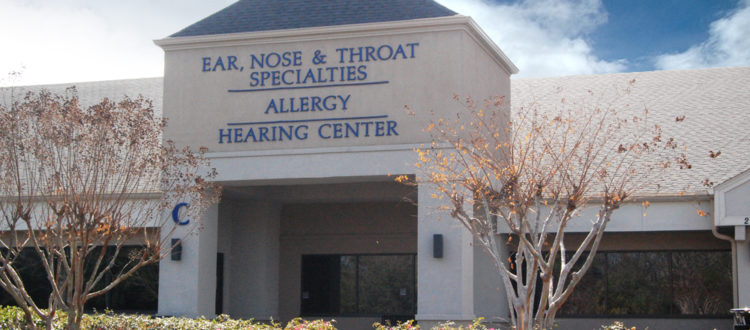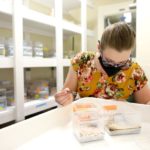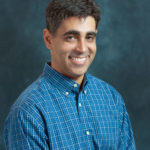UF Health to open new clinical program for patients with smell disorders
GAINESVILLE, Fla. — Patients suffering from an inability to smell soon will have an opportunity to seek help through a new University of Florida Health smell disorders program aimed at improving diagnosis and management of these conditions.
Physicians in UF Health’s department of otolaryngology are teaming up with the university’s research-focused UF Center for Smell and Taste to launch the UF Health Smell Disorders Program in early 2018 — a rare new model that pairs clinical care for smell disorders with extensive research and educational efforts currently underway to better understand and develop treatments for the often mysterious conditions.
“This partnership will make UF a leader in the southeastern United States as far as a center for comprehensive evaluation, treatment and research,” said John D. Harwick, M.D., an assistant professor of otolaryngology in UF’s College of Medicine. “If a patient is going to travel a long distance, they want to be able to get all of these aspects in one place and in one trip, and we are proud that we are one of the few places to offer this in the world.”
An estimated 16.2 million Americans are affected by a severe smell disorder. With few clinics around the world specializing in this condition, UF’s new program will provide a valuable resource to patients who are unable to smell, which can result from myriad other disorders, including allergies, chronic sinus infections, traumatic brain injury, Parkinson’s disease, congenital anosmia (lifelong inability to smell) and more.
The new Smell Disorders Program sprung from feedback provided by sufferers of smell disorders. Earlier this year, Steven Munger, Ph.D., director of the UF Center for Smell and Taste and a professor of pharmacology and therapeutics in the College of Medicine, partnered with a U.K.-based charity called Fifth Sense to host an education- and support-oriented conference in Gainesville. Those in attendance made one thing clear, Munger said: There are not sufficient resources available.
Thus was conceived the idea to start a new clinical program to operate in parallel with the basic science research and education efforts already underway at the Center for Smell and Taste, among the largest research groups dedicated to these senses worldwide, said Munger, a member of the Evelyn F. and William L. McKnight Brain Institute of the University of Florida.
“There are too many people going undiagnosed, feeling alone and abandoned and not understood by the medical system,” Munger said. “Opening our new program will close that gap. Our longer-term goal is to develop new treatments and therapies that will hopefully restore smell function for a lot of these people. In the meantime, we can add a lot of value by providing support, education and, when available, treatment.”
The new clinic will offer the latest technology with a new device called an olfactometer, which measures the ability to detect odors.
“Currently, the tools we have in clinic to diagnose smell disorders are very limited and very unsophisticated,” said Jeb M. Justice, M.D., an assistant professor of otolaryngology in the College of Medicine. “This technology (olfactometry) is not available in most clinical centers for smell disorders. It will allow us to give the patient objective measurements of the details of their smell diagnosis as well as follow these patients in the long term to monitor their progress from treatment.”
Current treatments for smell disorders depend on the cause. If smell loss is due to nasal polyps, chronic sinus infections or nasal inflammation from allergies, medicines or surgery can help.
“Unfortunately, however, we don’t currently have many effective treatments for smell loss related to a virus or head trauma,” said Justice.
Nonetheless, such patients stand to greatly benefit from education on how to live with smell loss, which can impair the ability to detect when food is spoiled or gas is leaking, among other hazards.
As UF scientists continue working toward the discovery of new therapeutic treatments, said Munger, “we can help people to better manage their impairment to improve their quality of life.”
For more information about the UF Health Smell Disorders Program, visit http://smellclinic.cst.ufl.edu. For patients wishing to make an appointment, the new clinic phone number is 352-594-0529.






